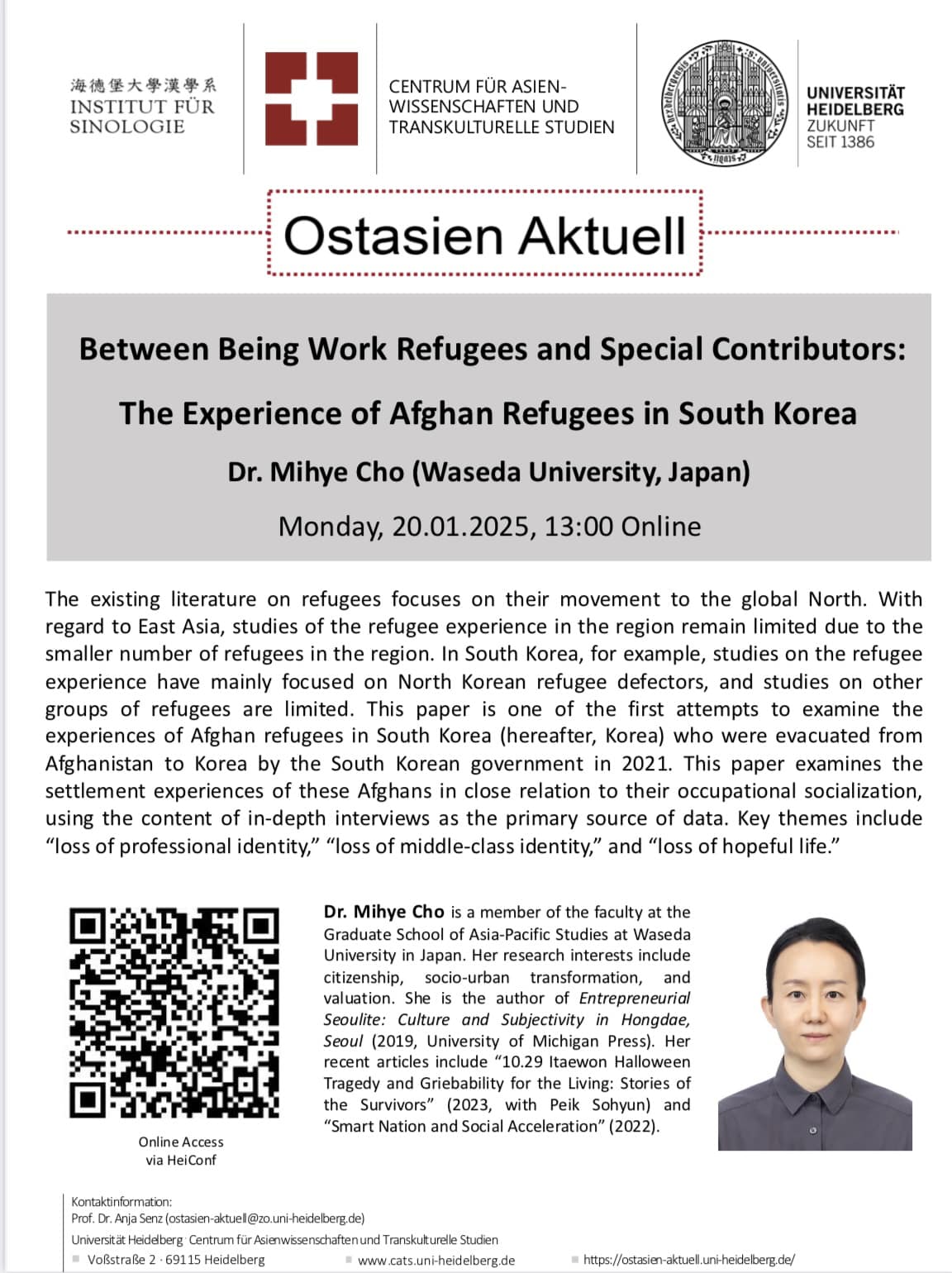time zone will be applied.
Report this post?

You are cordially invited to the following online lecture.
Abstract:
Existing literature on refugees focuses on their movement to the global North. With regard to East Asia, studies of the refugee experience in the region remain limited due to the smaller number of refugees in the region. In South Korea, for example, studies on the refugee experience have mainly focused on North Korean refugee defectors, and studies on other groups of refugees are limited. This paper is one of the first attempts to examine the experiences of Afghan refugees in South Korea (hereafter referred to as Korea). The United States withdrew its troops from Afghanistan in August 2021, formally ending its military involvement in the conflict that began in October 2001. Since the United States began military operations in Afghanistan, South Korea has maintained its status as a key partner in the country's reconstruction efforts. The Korean government decided to withdraw from Afghanistan after the U.S. withdrawal and subsequently evacuated its Afghan staff who had facilitated the Korean government's efforts. The evacuation project dubbed "Operational Miracle" was initiated and 391 Afghans, including the Korean government's purported partners and their dependents, were evacuated from Kabul on August 26, 2021. These Afghans first stayed in temporary facilities for a period of time, during which they received Korean language instruction and participated in other programs to facilitate their settlement. They were then resettled in various cities according to their professional backgrounds and preferences.
This paper presents the results of interviews conducted with a number of the special contributors. It examines the settlement experiences of these individuals in close relation to their work socialization, using the content of the in-depth interviews as the primary source of data. The interviewees are nine male Afghan Special Contributors between the ages of 25 and 55 living in five different cities in Korea. Only male members of the families were interviewed, although some female members were present on some occasions. This was due to the fact that the male members were employed with the support of the Korean government. This paper examines their domestic migration and work experiences in Korea and explores the extent to which work life affects their integration into Korean society and the formation of a sense of belonging. In particular, it focuses on the respondents' experiences of "loss of occupational identity," "loss of middle-class identity," and "loss of hopeful life" in relation to the notion of belonging.
Biography:
Dr. Mihye Cho is a member of the faculty at the Graduate School of Asia-Pacific Studies at Waseda University in Japan. Her research interests include citizenship, socio-urban transformation, and valuation. She is the author of "Entrepreneurial Seoulite: Culture and Subjectivity in Hongdae, Seoul" (2019, University of Michigan Press). Her recent articles include "10.29 Itaewon Halloween Tragedy and Griebability for the Living: Stories of the Survivors" (2023, with Peik Sohyun) and "Smart Nation and Social Acceleration" (2022).